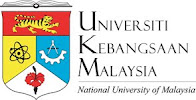Although, Malaysia does not have any provision which specifically governs the ISPs' liability, but it is controlled under the Communication and Multimedia Act 1998 in part 1 under section 6.
Under this section, ISP is divided into 5 types because it has different type of license.
1 network facility
any element or combination of elements of physical infrastructure used principally for, or in connection with, the provision of network services, but does not include customer equipment.
2 network service
a service for carrying communications by means of guided and / or unguided electromagnetic radiation. Example a company which provides communication service like Telekom, Maxis, DiGi and many more.
3 application service provider
person who provides an applications service.
4 content application service provider
an applications service which provides content.
Any website which provide a information which has content inside. For example Youtube, Wikipedia, Wobopedia and many more.
5 network service provider
A company that provides Internet access to ISPs. Sometimes called backbone providers, NSPs offer direct access to the Internet backbone and the Network Access Points (NAPs)
Generally in Malaysia, the ISP's liability is governed by the Multimedia and Communication Act 1998. Section 211 provides that;
(1) No content applications service provider or other person using a content applications service, shall provide content which is indecent, obscene, false, menacing, or offensive in character with intent to annoy, abuse, threaten or harass any person.
(2) A person who contravenes subsection (1) commits an offence and shall, on conviction, be liable to a fine not exceeding fifty thousand ringgit or to imprisonment for a term not exceeding one year or to both and shall also be liable to a further fine of one thousand ringgit for every day or part of a day during which the offence is continued after conviction.
Regarding to the defamation, there is a difficulty in establishing an ISP's liability for defamation is that national defamation laws differ so widely.
According to Chris Reed and John Angel ,
"… it is possible to state with certainty that in most, if not all, jurisdictions, the fundamental basis of defamation liability is the publication of untrue information, that liability will be based on the extent of the damage to the reputation of the person referred to in that information, and that the person's reputation of the person referred to in that information, and that a person's reputation cannot be damaged unless the information is disseminated to people other than the author."
In a simple word defamation occurs when a person expresses words that may lower another person’s reputation in the eyes of the public.
The laws governing defamation in Malaysia include in civil and criminal cases. In civil cases of defamation, when a private person sues another private person for defamation, the Defamation Act 1957 is applicable. Whereas in criminal cases of defamation, when the state prosecutes a private person for defamation, Section 499 to Section 502 of the Penal Code is applicable.
Copyright in Malaysia is controlled by the Copyright Act 1987. A very basic formulation is that there will be a copyright infringement when an individual copies a work which is held in an electronic format without the owner’s permission.
The authors also stress that ISP is only able to operate by copying information. If the ISP is merely part of the communications chain, it copies received pockets into memory (probably onto disk) and then sends fresh copies to the next host in the chain.
However, any copy to the RAM is considered most likely not an infringement. It is because of their lack of permanence and it could not be said to breach copyright.
However in daily operations, ISP will make further copies on a range of storage media, for example hard disc when caching a resource or DAT tapes when making a backup copies of a resource. (Playboy Enterprise v Frena).
The ISP also must comply with section 263 of the Communications and Multimedia Act 1998, Part x, General , Chapter 4, National Interest Matters regarding to the general duty of licencees which provides that:
"(1) A licensee shall use his best endeavour to prevent the network facilities that he owns or provides or the network service, applications service or content applications service that he provides from being used in, or in relation to, the commission of any offence under any law of Malaysia.
(2) A licensee shall, upon written request by the Commission or any other authority,assist the Commission or other authority as far as reasonably necessary in preventing the commission or attempted commission of an offence under any written law of Malaysia or otherwise in enforcing the laws of Malaysia, including, but not limited to, the protection of the public revenue and preservation of national security."
As reported in The Star Online, dated 28 August 2008, " Section 263 falls under the National Interest Matters part of the Act which states that an Suruhanjaya Komunikasi dan Multimedia Malaysia (SKMM) licensee would prevent their facilities from being used in, or in relation to, the commission of any offence under any law of Malaysia. It also states that upon written request of the SKMM or any other authority, the licensee would assist to prevent the commission or attempted commission of any offence under any written law of Malaysia, including but not limited to the protection of public revenue and the preservation of national security."




